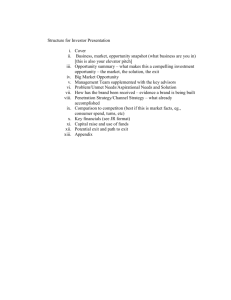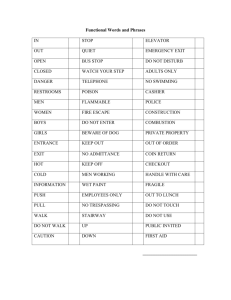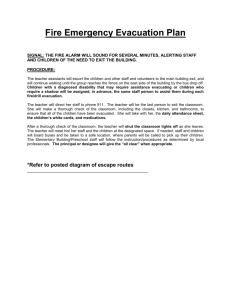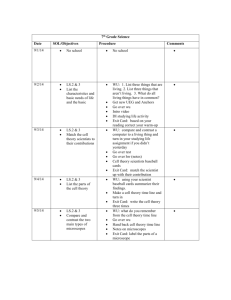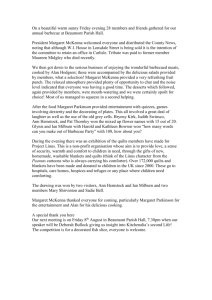PDF version
advertisement
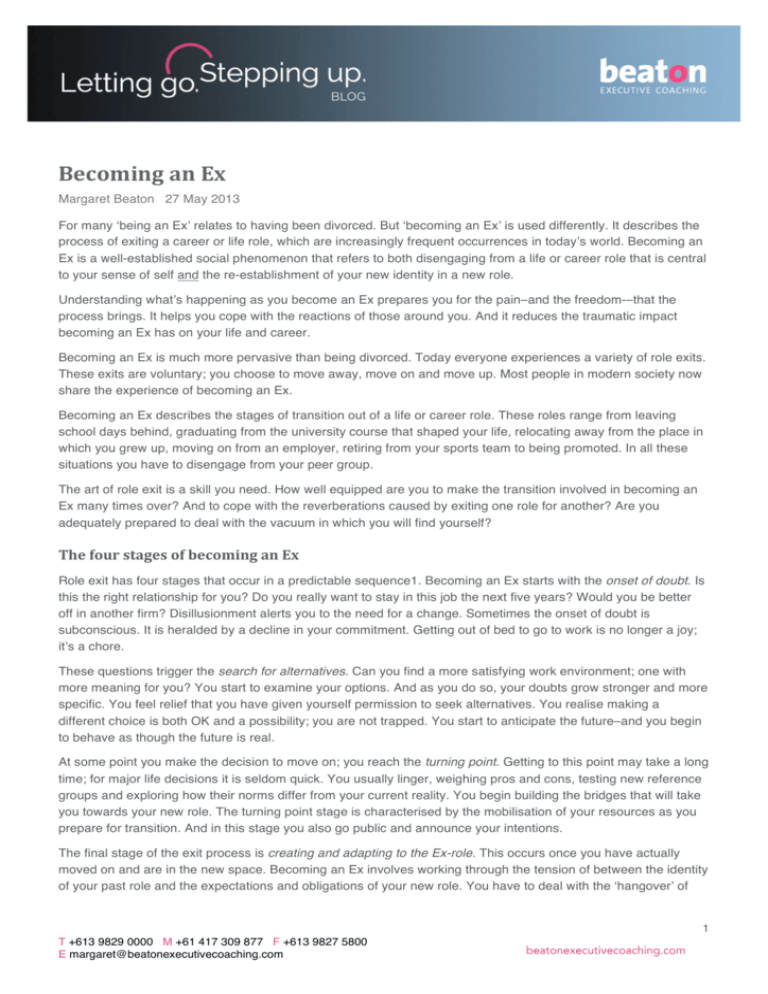
Becoming an Ex Margaret Beaton 27 May 2013 For many ‘being an Ex’ relates to having been divorced. But ‘becoming an Ex’ is used differently. It describes the process of exiting a career or life role, which are increasingly frequent occurrences in today’s world. Becoming an Ex is a well-established social phenomenon that refers to both disengaging from a life or career role that is central to your sense of self and the re-establishment of your new identity in a new role. Understanding what’s happening as you become an Ex prepares you for the pain–and the freedom­–that the process brings. It helps you cope with the reactions of those around you. And it reduces the traumatic impact becoming an Ex has on your life and career. Becoming an Ex is much more pervasive than being divorced. Today everyone experiences a variety of role exits. These exits are voluntary; you choose to move away, move on and move up. Most people in modern society now share the experience of becoming an Ex. Becoming an Ex describes the stages of transition out of a life or career role. These roles range from leaving school days behind, graduating from the university course that shaped your life, relocating away from the place in which you grew up, moving on from an employer, retiring from your sports team to being promoted. In all these situations you have to disengage from your peer group. The art of role exit is a skill you need. How well equipped are you to make the transition involved in becoming an Ex many times over? And to cope with the reverberations caused by exiting one role for another? Are you adequately prepared to deal with the vacuum in which you will find yourself? The four stages of becoming an Ex Role exit has four stages that occur in a predictable sequence1. Becoming an Ex starts with the onset of doubt. Is this the right relationship for you? Do you really want to stay in this job the next five years? Would you be better off in another firm? Disillusionment alerts you to the need for a change. Sometimes the onset of doubt is subconscious. It is heralded by a decline in your commitment. Getting out of bed to go to work is no longer a joy; it’s a chore. These questions trigger the search for alternatives. Can you find a more satisfying work environment; one with more meaning for you? You start to examine your options. And as you do so, your doubts grow stronger and more specific. You feel relief that you have given yourself permission to seek alternatives. You realise making a different choice is both OK and a possibility; you are not trapped. You start to anticipate the future–and you begin to behave as though the future is real. At some point you make the decision to move on; you reach the turning point. Getting to this point may take a long time; for major life decisions it is seldom quick. You usually linger, weighing pros and cons, testing new reference groups and exploring how their norms differ from your current reality. You begin building the bridges that will take you towards your new role. The turning point stage is characterised by the mobilisation of your resources as you prepare for transition. And in this stage you also go public and announce your intentions. The final stage of the exit process is creating and adapting to the Ex-role. This occurs once you have actually moved on and are in the new space. Becoming an Ex involves working through the tension of between the identity of your past role and the expectations and obligations of your new role. You have to deal with the ‘hangover’ of 1 T +613 9829 0000 M +61 417 309 877 F +613 9827 5800 E margaret@beatonexecutivecoaching.com the past or role residual as you develop your new persona. This is emotionally and physically demanding. Successfully becoming an Ex means consciously minimising the remnants of the role you are leaving behind. Each stage of becoming and Ex involves other people Role exit is a social process; it involves friends, work colleagues, family and your broader network. All are stakeholders in your role exit. At each stage of the process there will be subtle changes in your behaviour–these act as social cues to others. They trigger responses that may confirm where you’re at or challenge your position. There are three keys to successfully becoming an Ex. First you need to understand the stages of this journey. Then you need to recognise the involvement and reactions of significant others at each stage of the process. Finally you have to manage your own responses to others. If you enjoyed reading this post you may also find these insightful + You are who you think you are + Could this be you? 1. Helen Rose Fuchs Ebaugh wrote Becoming an Ex in 1988, published by The University of Chicago Press. This post was written by Dr Margaret Beaton, a director of Beaton Executive Coaching and Beaton Research + Consulting. You can also find Margaret on LinkedIn. 2 T +613 9829 0000 M +61 417 309 877 F +613 9827 5800 E margaret@beatonexecutivecoaching.com

